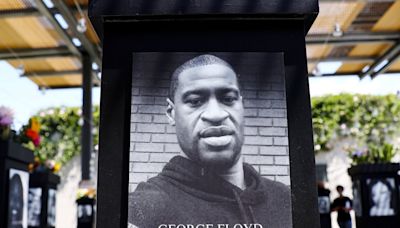Search results
People also ask
How does Sylvia Plath describe her father?
When did Sylvia Plath write Daddy?
What is the poem Daddy by Sylvia Plath about?
How does Sylvia Plath start Daddy?
A powerful and personal poem by Sylvia Plath, who explores her relationship with her father and his involvement with Nazism. She uses vivid imagery, metaphors and irony to express her anger, hatred and grief towards him.
- “Daddy” Summary.
- “Daddy” Themes. Gender and Oppression. Where this theme appears in the poem: Lines 1-80. Power and Myth-Making. Lines 1-5.
- Line-by-Line Explanation & Analysis of “Daddy” Lines 1-5. You do not ... ... breathe or Achoo. Lines 6-10. Daddy, I have ... a Frisco seal. Lines 11-15. And a head ...
- “Daddy” Symbols. Blackness. Where this symbol appears in the poem: Line 2: “black shoe” Lines 46-47: “Not God but a swastika / So black no sky could squeak through.”
A powerful and personal poem by Sylvia Plath, addressing her father's death and her own identity as a Jew and a poet. She uses vivid imagery, metaphors and irony to express her anger, grief and liberation from her father's influence.
- Summary
- Poetic Techniques
- Themes
- Analysis, Stanza by Stanza
- Conclusion
- GeneratedCaptionsTabForHeroSec
‘Daddy‘ by Sylvia Plath uses emotional, and sometimes, painful metaphorsto depict the poet’s own opinion of her father. The poem begins with the speakerdescribing her father in several different, striking ways. He is, at once, a “black shoe” she was trapped within, a vampire, a fascist and a Nazi. While alive, and since his death, she has been trap...
Plath makes use of a number of poetic techniques in ‘Daddy’ these include enjambment, metaphor, simile, and juxtaposition. The former, juxtaposition, is used when two contrasting objects or ideas are placed in conversation with one another in order to emphasize that contrast. A poet usually does this in order to speak on a larger theme of their tex...
In regards to the most important themes in ‘Daddy’, one should consider the conversation Plath has in the text about the oppressive nature of her father/daughter relationship. The theme of freedom from oppression, or from captivity is prevalent throughout this text, and others Plath wrote. Despite her father’s death, she was obviously still held ra...
Stanza One
In this first stanza of ‘Daddy’, the speaker reveals that the subject of whom she speaks is no longer there. This is why she says and repeats, “You do not do”. The following line is rather surprising, as it does not express loss or sadness. On the contrary, it begins to reveal the nature of this particular father-daughter relationship. The speaker compares her father to a “black shoe”. It seems like a strange comparisonuntil the third line reveals that the speaker herself has felt “like a foo...
Stanza Two
In the second stanza of ‘Daddy’, the speaker reveals her own personal desire to kill her father. The first line states, “I have had to kill you”. The next line goes on to explain that the speaker actually did not have time to kill her father, because he died before she could manage to do it. She does not make this confession regretfully or sorrowfully. Rather, she calls him “a bag full of God” which suggests that her view of her father as well as her view of God was one of fear and trepidatio...
Stanza Three
Here, looking at her dead father, the speaker describes the gorgeous scenery of the Atlantic Ocean and the beautiful area of “Nauset”. However, she also uses the word “freakish” to precede her descriptions of the beautiful Atlantic Ocean. This reveals that even though her father may have been a beautiful specimen of a human being, she knew personally that there was something awful about him. In the final two lines of this stanza, the speaker reveals that at one point during her father’s sickn...
Sylvia Plath (biography) begins ‘Daddy’ with her present understanding of her father and the kind of man that he was. She then offers readers some background explanation of her relationship with her father. As ‘Daddy’ progresses, the readers begins to realize that the speaker has not always hated her father. She has not always seen him as a brute, ...
A poem that explores the complex and oppressive relationship between the poet and her father, who died while she was young. The poem uses metaphors, juxtaposition, and enjambment to express the speaker's pain, anger, and desire for freedom.
"Daddy" is a poem written by American confessional poet Sylvia Plath. The poem was composed on October 12, 1962, one month after her separation from Ted Hughes and four months before her death. It was published posthumously in Ariel during 1965 [1] alongside many other of her final poems, such as " Tulips ” and " Lady Lazarus ".
Sylvia Plath. Track 24 on Ariel. Producer. Ted Hughes. The poem is an extraordinary achievement, loaded with anger and brutal language and repetition of emphatic ideas. Despite many...
A poem about a daughter's troubled relationship with her dead father, who was a Nazi and a bully. The speaker kills her father symbolically and marries herself to a model of him, in a dark and controversial work of art.





